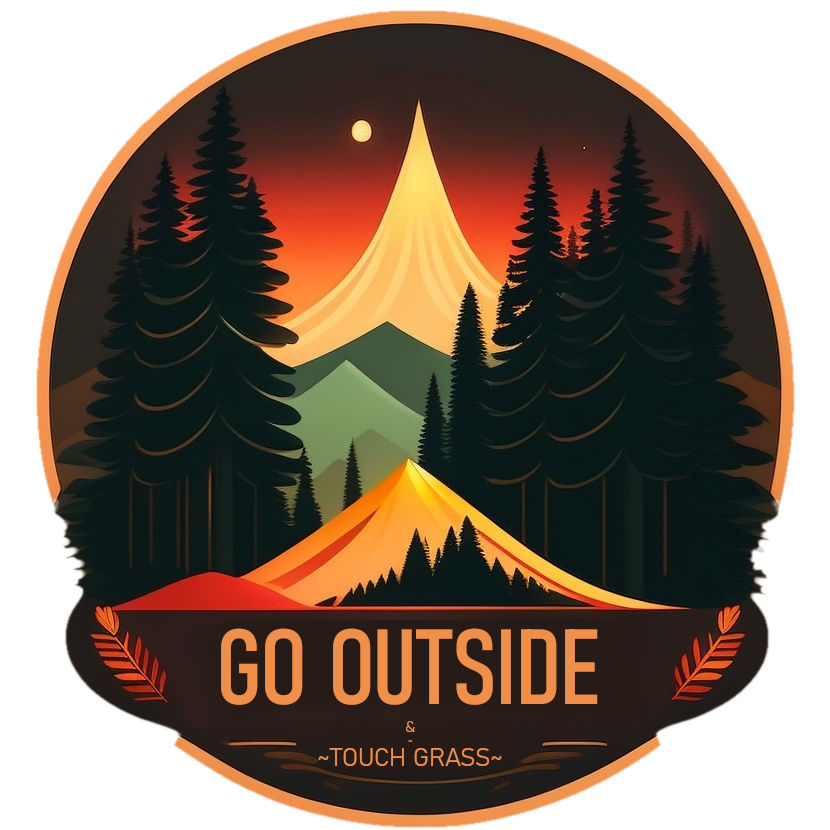###Update###
I tried a bit of Notesnook. While it wasnt bad it didnt quite fit the expectation that obsidian created for me for what I want. Maybe it was user error but I honestly can’t say what specific aspect bothered me.
For now I decided to stay with what I have experience witg and bought a year of Obsidian-sync for 1 Remote-Vault
Thanks to everyone that suggested me solutions to my really specific problem. I appreciate that and I love(d) the discouse I seemingly sparked in this post.
Please continue commenting. Maybe someone else still hasnt found their solution yet :)
Original Post:
Hello fellow lemmy users, for the lack of a better fitting community I hope my request for help fits here the best.
I am a bit of a scatter-brain, have some notes in Google Keep, OneNote, Obsidian and in GitHub or other places. This is partially multiplied by splitting my work stuff with my home stuff.
What I like about every app I use so far
- OneNote: I like the way I can write on something like a canvas. Very useful if the note does fit the general theme of the page but not at the exact position. Also helps by utilizing the big space of a horizontal monitor. Also it now sports a very good mobile editor.
- Obsidian: So easy to backlink between notes and I love the graph view. I also like the extension “code styler” which lets me format inline code blocks with syntax highlighting (e.g.: `{powershell icon} Get-ChildItem -Path C:\Path\To\Folder -Filter XYZ*`).
I like to learn scripting but I also use obsidian for RL-stuff and technical non-code like keeping track of configs, settings, wishlists etc. - Google Keep: I bastardize the check-box feature to keep track of (online) shop orders. Mostly the only reason is that checked items get hidden in a collapsed section

Any other program that let’s me to that (even with plugin/extension) is a valid replacement candidate
What I dislike:
- OneNote:
- Quite difficult to link between notes (unsupported on mobile)
- Limited to 1 folder deep notes. Currently work around that by using the horizontal space or multi notes.
- A bit clunky to edit bigger notes
- By microsoft.
- Obsidian:
- No native way to have everything on a server outside of using the obsidian-sync service for $4 or the community plugin which requires me to use some novel type of db called couch-db (ugh, another service to keep updated/troubleshoot). I can stomach the $4 but am limited to only one vault which I don’t really like.
- Google Keep:
- No real way to have everything backed up. Only use it for quick notes or for my shipment list. Everything else is probably exported to Obsidian/OneNote if I feel like doing house-keeping.
How I currently manage/store my files:
- Right now I use
- OneNote which is stored on OneDrive (I like how Outlook (classic) works and I got 1TB of cloud storage),
- Obsidian which syncs with the plugin “remotely sync” to my OneDrive folder.
- Google Keep: Dunno. Probably some account storage on google
What I want:
- A primarily server-side setup or with a native sync feature that works like on OneNote: The true source is my server or the cloud, the client only streams/caches the data locally. I have no problem with individual markdown files.
I just dislike the general need to sync them manually with external tools like syncthing.
I already have a good backup solution on my main server and secondary server (For the curious: Veeam backup and replication that backs my proxmox VMs). No need to manage another set of backups. Another reason I want everything in one spot as I already have everything scattered. - A tree view of my notes like obsidian and OneNote does. Plus point if the app can even do sections like OneNote does.
- (Optional) A way change-log of the edits done. Some apps do it by implementing git or have a very rudimentary way to manage that
- Mobile/desktop companian app: PWA is okay but I would probably miss out on the caching feature. I would prefer an actual (android) app on my phone. Same for Windows.
What I found so far but have issues so far:
- silverbullet: Server-side but seems to miss the side bar with the tree view (which can probably be added by another extension). Seems like the best candidate so far
- Joplin: Seems alright to use but I can’t use callouts which (to me) is mandatory to use with coding/scripting tasks.
- Obsidian: Fits best of all I found but I dislike the $4. But still miles better as the former option which was (i believe) $15 monthly
- BookStack: I bit limited how it manages the change-log. Seems okay
- Outline: No way to sync it without paying beyond manual sync. Didnt try it out much but I like how it looks.
- Logseq: Same issues as with obsidian: Paid sync. Didnt look much beyond
- Joplin: Sufficient but no callouts :(
- Trilium Notes: Maintenance mode. Not a deal-breaker but I don’t want to migrate something that could maybe die :/
Thanks for reading the wall of text and I wish you a good start into the year of 2025. ✌️
Just use obsidian with sync thing.
This.
Also, one of the machines is running the git plugin, so things get saved in my Forgejo as well. I guess I could set it up so they save to hit, but in different branches. 🤔
emacs + org mode.
You can sync the notes files with any app of your choosing (OneDrive, Google Drive, Nextcloud, Syncthing).
Has anyone suggested a Nextcloud installation? You’d have a notes sync as part of the whole calendar setup. I use QownNotes on my Linux computers and the native notes app on my de-googled Android phone. The phone requires the DavX app to setup the sync, but it’s bulletproof after that. The notes are available as .md files and exportable as pdf.
Nextcloud might seem like overkill, but it is light enough to run on a Pi4 and it would take care of most of your server management and update challenges. You can use as much or as little of its functions as you want.
I know this says “Solved” but you should look into Gitjournal. You can use the one free private repo from gitlab to connect to. Just use vscode or similar on PC and Gitjournal on your phone. Version controlled notes, file based instead of database, can organize on PC via folders (Gitjournal recognizes the folders, don’t think it can create them though). I absolutely love it.
Bookmarked. Thank you :)
Checkout Notesnook. I’ve tried most of the ones you’ve listed and have been really enjoying how well it works compared to the competition considering its end-to-end encrypted.
A few features:
- Clients and server are open source.
- End-to-end encrypted note syncing.
- You can publish public notes.
- You can publish privates notes that require a password to view.
- You can self-host the sync server.
- You can self-host the publishing server.
- Full offline mode.
- At rest encryption.
- Multi-platform clients with feature parity (Android, iOS, Linux, Windows, MacOS, Web).
- Most if not all of the general features you’d expect from a notes taking application.
One thing I really like about the project is how open they are about what they’re doing, why they’re doing it and what the future holds. It’s been great seeing their roadmap (https://notesnook.com/roadmap/) and seeing promised features land with new ones being added, and I’ve only been using it for less than a year now!
So you dislike external sync options but also don’t want to pay for internal sync options? Additionally you are in a self hosted community so you’re looking for a presumably open source project (some you listed are not), and given internally supported sync services would be one way fund development i think this narrows what your are looking for by quite a bit. You basically would be looking for an open source project that meets all your other criteria and happens to let you sync the files to your own server for free. Why would such a project not just let you take things into your own hands with whatever flavor of sync/backup you prefer? Otherwise if they’re building a sync system it would probably be a monetized cloud service which brings us back to the beginning.
Maybe such a thing exists, but I haven’t seen such a thing since that is extra development for little to no gain. Most people are happy to either pay for the cloud service to fund development or sync on their own.
Logseq: Same issues as with obsidian: Paid sync. Didnt look much beyond
Logseq is open source. Obsidian is not. So yes, both have paid sync but you can also just sync or backup the files on your own. Just be careful of sync services that sync while files/db are in use to avoid conflicts.
Maybe it’s just how I conveyed the idea.
Basically something like obsidian (or any other KB solution with markdown) but it can also support self-hosted sync-servers preferably natively.
Obsidian has it to some degree with a community plugin (totally valid. I just dislike having to use an external DB rather than bare files).
The alternative is using a separate app/program like syncthing but then I’d have to keep both open and one continuously open. My preference would be an all-in-one edit and sync. This way the program would also be aware of the content sync and could close in the background once syncedI love logseq and was quite annoyed with the syncing as well, however I have now figured it out. I use nextcloud and the nextcloud sync client for all my PCs and laptops and folder sync on my phone since logseq does not accept the virtual environement of nextcloud on android. With this setup I love it. Same as the guy before: Be carefull not to edit to files at the same time otherwise you are golden.
This seems to be the most common question in this sub…
Results from me asking this 1Y ago: https://lemm.ee/post/4593760
Went with Joplin and using it since.
Results from the same question 2 months ago: https://lemm.ee/post/45943693
Results from the same question 1 months ago: https://lemmy.world/post/22885340
I think your post was even the one suggested during my post creation. Skimming through your linked posts it seems like joplin and obsidian is used often but I have yet to read about software like notesnook which looked promising.
I use Obsidian primarily and just push everything to git. Remember to gitignore
.obsidian/workspaces.jsonto prevent conflicts on multiple devices.You are posting in self hosted by also referencing some software that isn’t so I’m not sure exactly what you’re asking for in that regard.
Saber is the only non-onenote notes software that supports handwriting and is fully FOSS, to my knowledge. I use that and then back up with Syncthing.
Hello fellow lemmy users, for the lack of a better fitting community I hope my request for help fits here the best.
And I am also mentioning self-hostable solutions like silverbullet. And there might be a program that nobody has listed yet but may fit all criteria.
Gotcha. I like Saber for handwritten notes. It also supports photos and PDFs, so I will get some meeting notes, upload them into Saber and then handwrite notes on top of the PDFs.
It is cross-platform and has native NextCloud support, and they’ll even give you a server to use if you sponsor the project.
Seems like a very cool solution for handwritten notes (Surface tablet, ipad, tablets) but not for computer written text notes.
If I would use OneNote in this capacity this would be the perfect replacement!
Honestly it seems like Obsidian is the one matching most of your criteria. $4/mo isn’t bad for a bullet proof sync solution with version history, imo. I also have my vault backed up on each client locally for extra protection.
I’d love to suggest Logseq because FOSS, but man does the android app suck.
That said, I find Obsidian really lacks in the simple to-do/checklist function. So I use Quillpad synced to my Nextcloud server for Google Keep-like functionality. Everything else goes into Obsidian.
I just sync a folder with syncthing and use native markdown editors.
On a desktop I like zettlr. On android I like zettel notes. Both have zettelkasten features which is pretty much just a way to link to other files.
Exactly what I do, too! (Tho I use VS Code and owncloud on desktop, and foldersync on Android.) Only issue I have is occasional file conflicts, if some edits didn’t get sync’d right away. (Tho it hasn’t happened recently, perhaps due to Zettel’s recent file saving updates.)
This is the way
I’ve been using silverbullet for a while. Selfhosted, saves everything on simple markdown files and easy to customize with plugins and space scripts.
I really tried to like silverbullet but the VI mode is too bare bones for me. The worst thing about it is that Ctrl+W closes the browser tab instead of deleting one word left of the cursor and there is no way around that. I think I closed the silverbullet tab 20 times while typing a single note.
+1 to silverbullet. Been using it for a long portion of its lifetime, I love that you can adjust it and add functionality by writing pages in the editor
Can you explain what you mean by that? Sounds neat
You can write code blocks with a special syntax that makes silverbullet interpret the code block as a script and executes it. It’s referred to as space script in the documentation iirc. You can add commands, text transformers, etc with ease.
The live query templating system is super neat too, I have a few subsections in my notes with an index page that automatically lists all child pages with a summary of the page, if I’ve written one for that page.
+1 for Silverbullet too!
Paired with markor on android and syncrhing is my to go solution.
I could use silverbullet on android directly as well but for some reason I prefer a native editor there.
What’s the benefit if using silver bullet over Obsidian or logseq?
Silverbullet is open source and has a very simple architecture with slightly extended markdown files which are easy to sync using whatever you use for syncing files. Plus it syncs files locally and allows you to edit offline and sync later (with a basic sync conflict resolution to avoid losing changes) and a very cool feature is that it allows you to write your own scripts to get whatever feature you want.
For me, not needing another app and the fact that is easily selfhosted is great. For Obsidian you have to pay for their sync solution and I remember the logseq app was cumbersome and the web client wasn’t so good, but that’s my opinion.
Beware of Joplin: saved files ate not native MD files. They have MD extension but internally are quite different.
Still plain text files in a way, but not usable with a different editor easily.
And the file names are not the note titles like Obsidian (and logseq I believe)
True as well, impossible to find a note on Joplin using only the filesystem.
Good to know, thanks.
I just use Obsidian + Syncthing + MEGA. My obsidian folders are on my mega synced folder on my pc, and they are set up to use syncthing to push updates to all my other devices (2 phones and a tablet), but you can have as many devices as you want. It’s all free as well, and the cloud service can be any that you like.
Keep in mind that the Syncthing Android app was discontinued and thus isnt viable long term. The team wont work anymore on it and once it breaks it’s done for.
I could use Resilio for that but meh…Syncthing-Fork ☞ https://f-droid.org/packages/com.github.catfriend1.syncthingandroid/
ty :)
I like that the team promotes the fork.Yeah, I just use the fork.
Only the one written by the original Dev. There are others like syncthing fork.
Its still a perfectly viable solution for android.
I didn’t read the entire wall of text but didn’t see it listed. check out notesnook.
Ooh, I will be giving this a go!
Seems like a good candidate. Bookmarked it and will take a look. Thanks for the suggestion!
I use this too, such a great app.














